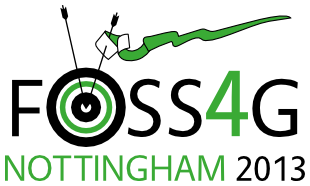Presentation
Space, Place And Psychogeography
Tim Waters (Topomancy)
13:30 on Saturday 21st September (in Session 65, starting at 1:30 p.m., EMCC: Room 1)
Show in Timetable
Psychogeography is a loose term but generally means "the study of the geographical environment, consciously organised or not, on the emotions and behaviours of individuals", or as the writer Alan Moore said it's "the poetry of place". The term originated with the Situationists in 1950's Paris and has it's roots as a technique for a critique of capitalism and the urban built environment. Whilst we can adopt this radical, critical side of psychogeography to help us in our work for social justice, and open collaborative efforts, psychogeography also has themes that are shared from many other areas, including art, architecture, urban planning, heritage and tourism. It is already present in the study of geography with studies about sense of place, vernacular places, vague geographies and fuzzy boundaries. With the development of the Internet and near ubiquitous mobile computing utilisation, everyone has greater access to information about places and can interact with spaces in a myriad of new unique ways whilst inside or outside a space. A place has sounds, smells, textures, history and a person in that space has their own perceptions. Spaces have invisible borders, architectures, opportunities for play, reflection, recreation. Location based services and games, neogeographical tools and new services and the ease of making new cartographies (using OSM for example) all influence and can be influenced by how we think about space and place. Psychogeography can give us useful insights into how space is organised within our society, how places are represented and work, and how it has the potential to influence the things we do within the geospatial world. An opportunity to do some short psychogeographical activities outside the conference venue at the closet break following the presentation will be given for participants.
